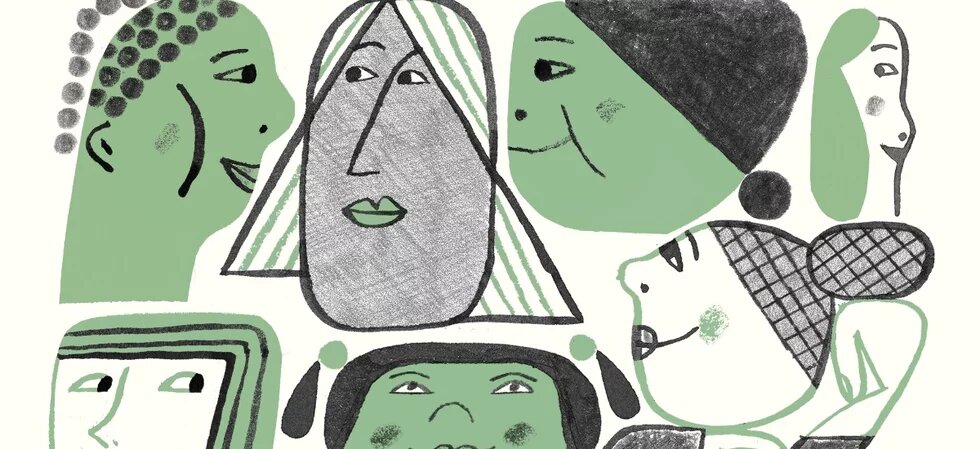In an age marked by rising authoritarianism, militarized politics, and anti-gender backlash, feminist peace in the Western Balkans stands as both an act of resistance and a re-imagining of security itself. The Women, Peace and Security Agenda needs to be reviewed beyond formal compliance, grounding it in care, justice, and solidarity. In these hostile times, women across the region transform remembrance into resilience, redefining peace as a shared, lived practice of hope and collective responsibility.

More than twenty years after the adoption of UNSCR 1325, the Women, Peace, and Security Agenda has significantly expanded beyond its initial focus on the 3Ps and 2Rs. Its transformative power lies in challenging the militarized, state-centered view of security and replacing it with an understanding rooted in care, environmental justice, and intersectionality. Today, the agenda must address a landscape where climate shocks, digital harms, disinformation, anti-gender mobilization, and ongoing violence against women intersect as gendered security threats. This also requires a shift in how we value the human and non-human worlds, recognizing every day, relational practices of care as essential for sustaining communities in fragile settings, as well as the planet Earth. Therefore, the focus of the WPS agenda is no longer on women just as participants at negotiation tables but as agents of knowledge and action in “invisible” realms of care, social reproduction, and community resilience.
Less Symbolism, More Structural Change
Against this conceptual background, political realities in the Western Balkans present familiar constraints. The uneven pace of EU accession, combined with a technocratic preference for “stability before democracy,” has led to formal compliance rather than transformative change. As a result, gender equality laws and UNSCR 1325 action plans exist, but their implementation remains weak.
Despite public opinion viewing nationalist politics as the biggest obstacle to peace and reconciliation in the region, transitional justice is often limited to symbolic “pardon” gestures and selective prosecutions. These efforts have not created a shared narrative of the past or addressed the underlying structural causes of harm. The gender perspective is mostly absent and is often reduced to issues related to conflict-related sexual violence. Although important, the focus on sexual violence in conflict can unintentionally reinforce the idea that women are only victims, while overlooking the economic, social, and political conditions that continue to cause harm long after ceasefires.
While Reconciliation Work Is Largely Led by Women, Negotiations Remain a Boy’s Club
Agreements tend to overlook women’s priorities or ignore gender considerations entirely.
Although women played a key role in drafting the original Resolution after the Yugoslav wars, their participation in peace processes and accountability mechanisms in the region is often limited to civil society consultations, while formal negotiations are mostly led by male elites. As a result, agreements tend to overlook women’s priorities or ignore gender considerations entirely. Nevertheless, women’s CSOs have collaborated across ethnic lines to rebuild trust, promote reconciliation, and push for gender-inclusive peace negotiations.
Although the Youth, Peace, and Security resolutions (2250/2419/2535) recognize education as a tool for prevention and reconciliation, it remains marginal in WPS/YPS implementation in the region. School curricula often overlook the importance of engaging with diverse histories. Conversely, mono-ethnic schooling reinforces mistrust and limits opportunities for tolerance education and gender studies.
Throughout the region, civil society has worked to close these gaps. These women-led initiatives elevate women’s meaningful participation beyond just negotiations or token gestures within security forces. Using a survivor-informed and gender-responsive approach, they promote non-judicial methods of truth-telling and memorialization, such as oral histories and women’s courts that encourage acknowledgment and empathy when formal mechanisms have stalled. These practices complement war crime prosecutions by creating the social conditions necessary for accountability to take hold.
Grassroots Reconciliation Work Remains Underfunded and Increasingly Under Attack
Yet such work remains chronically underfunded. Donor incentives still favor official instruments like National Action Plans, while the slower, locally rooted efforts of narrative change and community rebuilding struggle to secure ongoing support. The funding gap is worsened by the rise of government-organized NGOs (GONGOs) and increasingly restrictive environments for independent groups, including new legal and administrative measures that shrink civic space. For example, in the Republic of Srpska, the February 2025 “foreign agents” law labels organizations receiving foreign support and involved in political activities as “foreign influence agents,” with predictably chilling effects on association and speech.
The wider environment for gender equality and human rights work is worsening. In some parts of the region, the combination of donor withdrawals and internal political pressure has limited the space for independent women’s and youth organizations. Women journalists and human-rights defenders face SLAPP-style lawsuits, smear campaigns, and threats of violence; licensing rules and service standards are sometimes used to restrict specialized GBV providers.
Digital Platforms Give Militarized Masculinities and Gender-Based Violence a Second Home
Linked to it is the rise of violence against women, which remains a key security challenge. The legacies of war and increasing militarization of politics and civic space continue to influence gender norms and ideas of masculinity. Recent data show that men make up the vast majority of firearm owners and perpetrators of gun-related crimes in the Western Balkans, with many femicides involving firearms. These patterns reflect militarized and violent masculinity, shaped by war memories, nationalism, and unstable economic conditions, which legitimize hostility toward women and marginalized groups. Institutional responses are inconsistent, with victim-blaming attitudes and fragmented services limiting access to justice and support.
The rise of the anti-gender movement has become one of the most organized and destabilizing forces in the Western Balkans
Digital platforms worsen these harms. More than half of women online report technology-facilitated abuse, including harassment, unsolicited sexualized messages, and account breaches, mostly on Facebook and Instagram. Algorithmic boosting and influencer cross-promotion promote misogynistic narratives, portraying women as enemies and framing equality as a threat. The spillover into offline intimidation and abuse is not accidental; it is a core part of how anti-gender movements gain power.
The rise of the anti-gender movement has become one of the most organized and destabilizing forces in the Western Balkans. Combining ultra-conservative values with nationalism, populism, skepticism of the EU, and authoritarian politics, it attacks women’s and LGBTQIA+ rights, opposes reproductive freedoms, and promotes “traditional” family models. Closely linked to nationalist groups and parties, as well as to authoritarian narratives (also entrenched in academic institutions), these movements use the digital space as a main battleground. Campaigns targeting abortion and reproductive rights clearly show how digital strategies are used to attack women’s rights and weaken democratic progress.
Repressions Following Recent Protests in Serbia Have Affected Women Differently
The nearly year-long student-led protests in Serbia are one clear example for how these anti-gender movements exert and drive up the costs to participate in civil society. Driven by long-standing concerns about corruption, the protests started in the wake of a collapse of the train station canopy in Serbia's second-largest city with many casualties and spread from universities and high school campuses to streets across the country. The authorities’ responses have included arrests, intimidation, and pressure on educational institutions, creating an environment, where exercising fundamental rights, such as peaceful assembly and expressing political ideas, carries a higher risk.
In this setting, women—students, activists, journalists, and professors—face unique, gender-specific risks that threaten their safety and participation. Reports from protests and detentions describe sexual harassment and threats, as well as online and offline smear campaigns, doxing, and even physical violence. Women who speak out are targeted with defamation, and many female academics have received death threats for supporting the protests or criticizing abuses. The pattern is clear: gender-based violence and intimidation, both online and offline, are meant to silence, discredit, and push women out of public life.
Three Commitments Needed to Get the WPS Strategy Back on Track in the Western Balkans
First, to emphasize prevention by addressing emerging security concerns from a feminist perspective. This involves recognizing care, climate change, intersectional inequalities, and gender-based violence as essential security foundations.
Second, to recognize and oppose anti-gender movements and state-led wars against human rights and feminist activists. This involves safeguarding civic space through legal protections, independent oversight, and support from donors. Most importantly, reject laws that label independent associations as “foreign agents.”
Redefining security as a shared good rooted in care, democracy, justice, and equality.
Third, integrate transitional justice with feminist peacebuilding by supporting survivor-led documentation, regional memory projects, and inclusive memorialization alongside prosecutions, ensuring accountability becomes both a legal achievement and a social practice. This involves promoting education as a peace policy and practice by incorporating diverse perspectives and gender studies.
These priorities do not reinvent WPS. Instead, they reduce the material conditions that make backlash persuasive and violence conceivable. This is how WPS shifts from a technocratic checklist to a normative and political project aimed at redefining security as a shared good rooted in care, democracy, justice, and equality. In the Western Balkans, feminist peacebuilding in an era of backlash requires more than just inviting women into existing structures; it demands rethinking the structures themselves.

